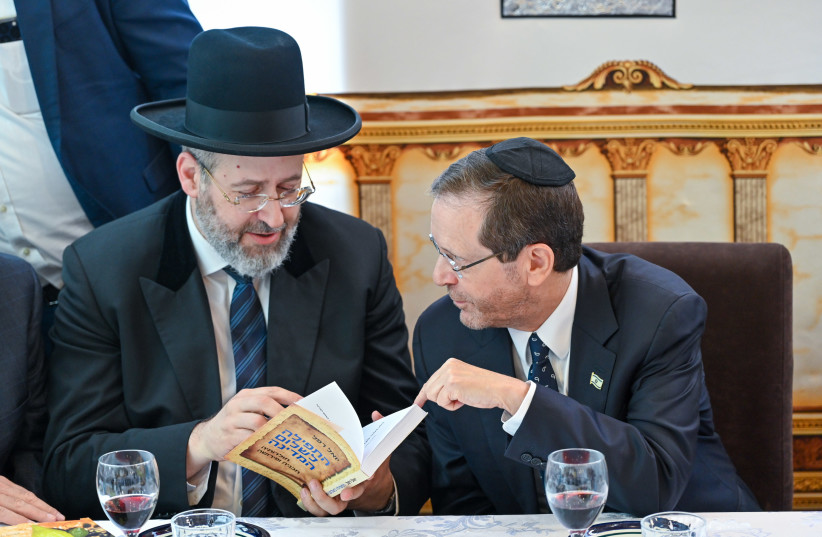Rabbi David Lau, Israel's Ashkenazi Chief Rabbi, announced on Monday that he would be establishing a special rabbinical court to tackle the challenge of religious divorce during the Israel-Hamas war.
Jewish religious law (halacha) has strict requirements for divorce, some of which cannot be met during a war. This leaves many women who don't know their husband's fate in a status called agunah (chained or anchored).
Under halacha, a man is required to give his wife a get, a document that finalizes the divorce. Without a get, the woman is unable to get remarried and any children she might have with another man would have the status of mamzer (bastard). Women have to get a get to be halachically divorced, but men don't, so they have no such consequences.

Special conditions for divorce
Under certain circumstances, a woman can receive a p'sak, a religious ruling, granting her a divorce. This ruling must be based on evidence that her husband is dead and there is no evidence he is alive.
Rabbinical courts are often reluctant to grant divorces without a get.
The Rabbinate announced that the establishment of the special court was because many families have brought cases arising from the current war that could not be easily dealt with.
The court will be composed of three judges: Rabbi Lau, Rabbi Eliezer Igra, and Rabbi Zvi Ben-Yaakov.
The director of all Rabbinical courts, Rabbi Eli Ben-Dahan, announced that all cases relating to the war should be referred directly to this special court.
